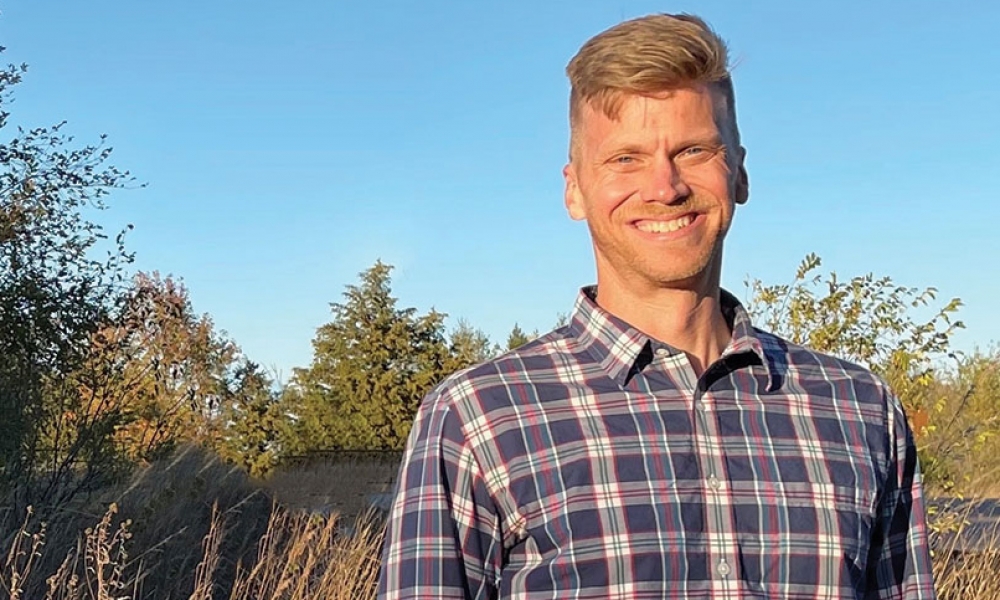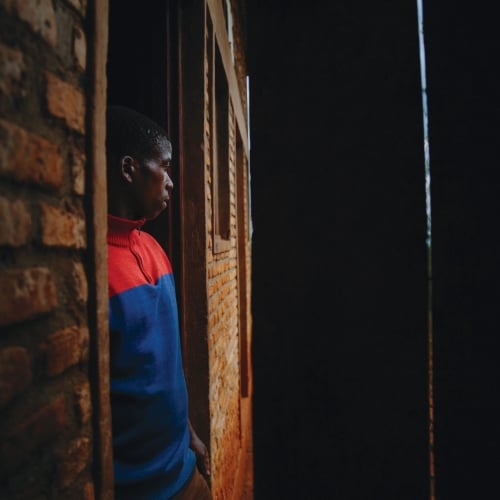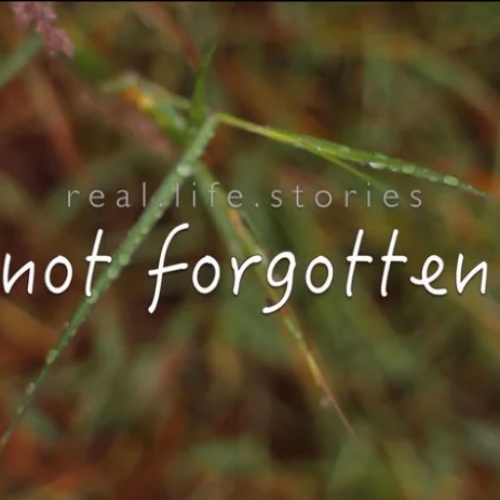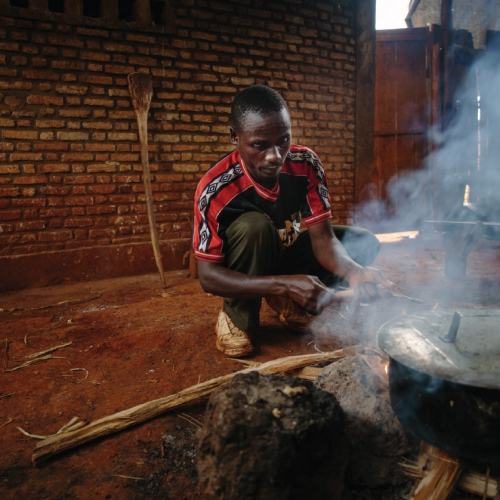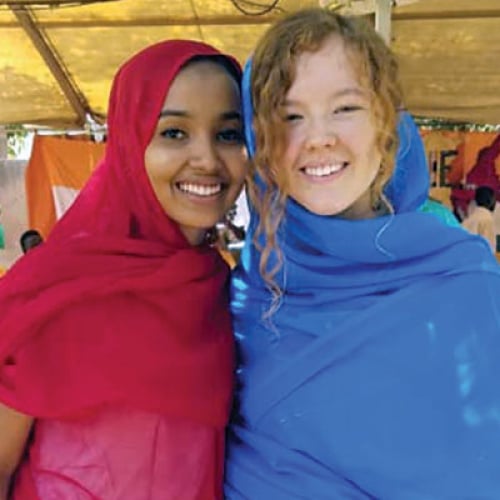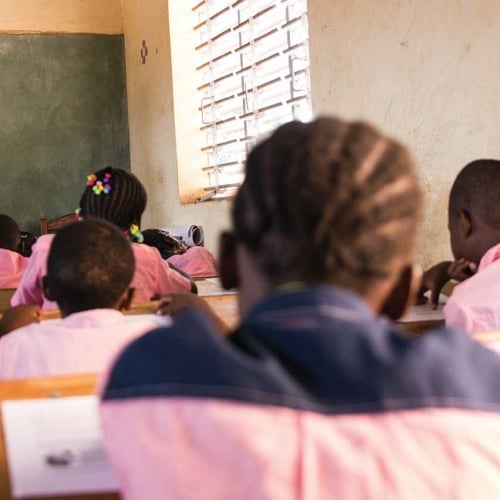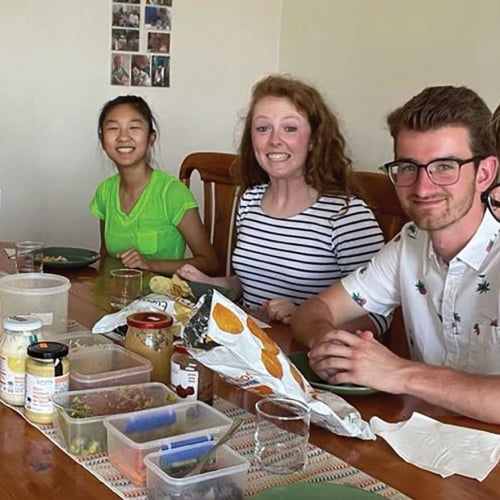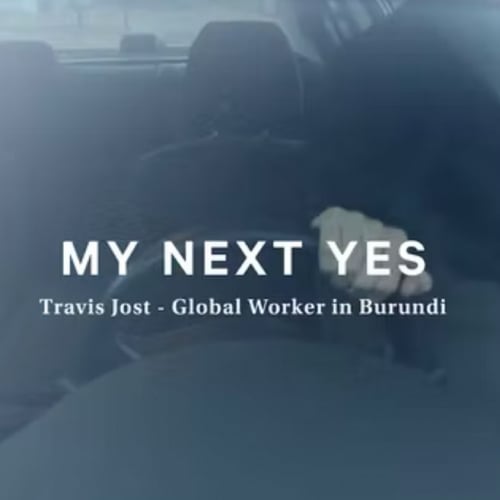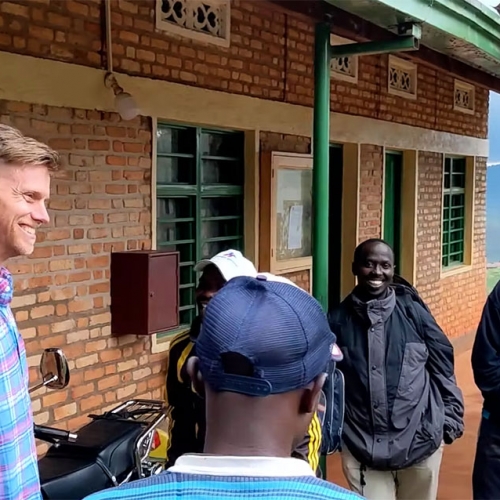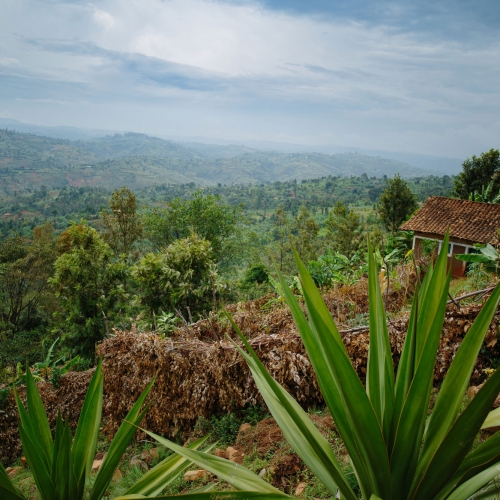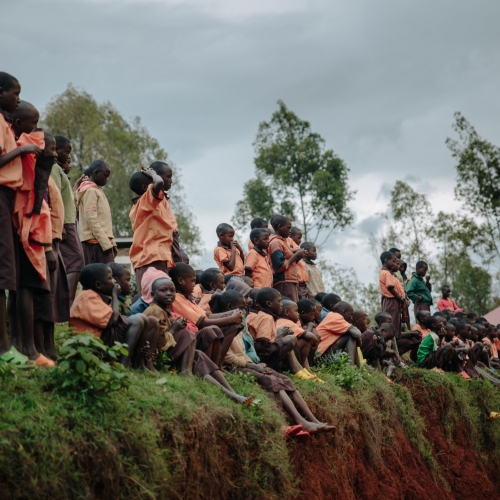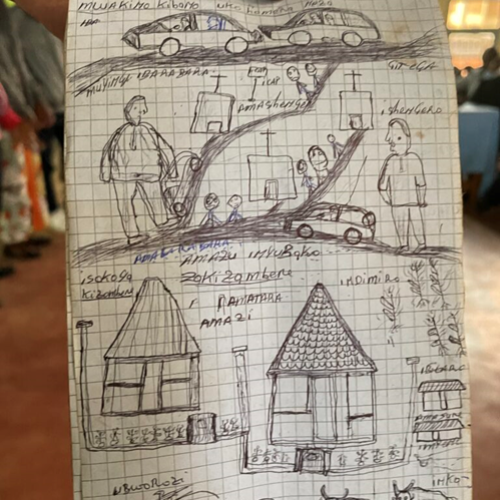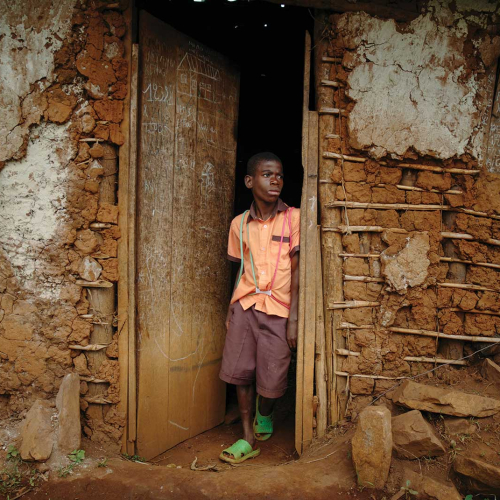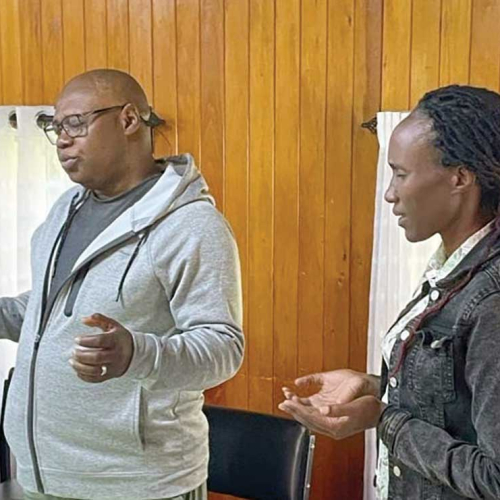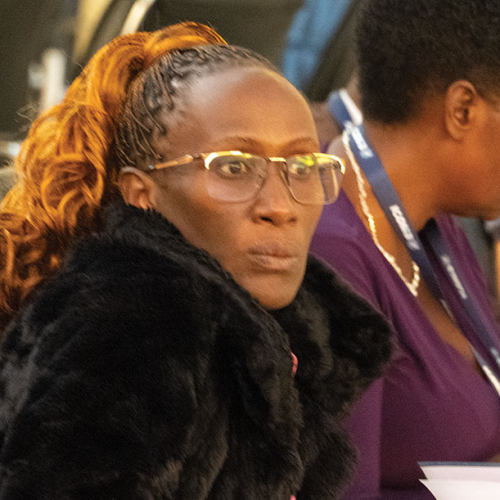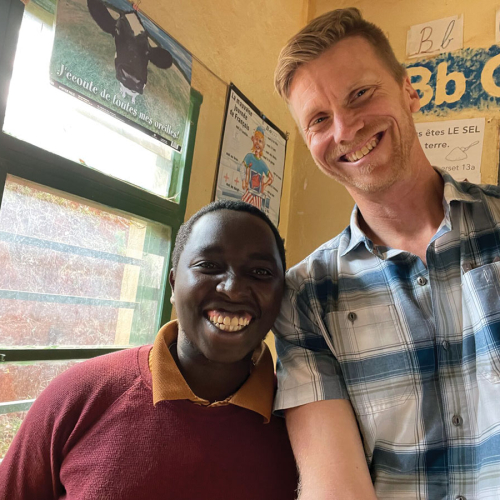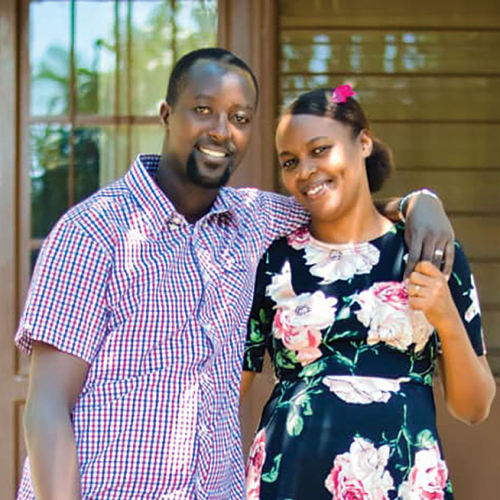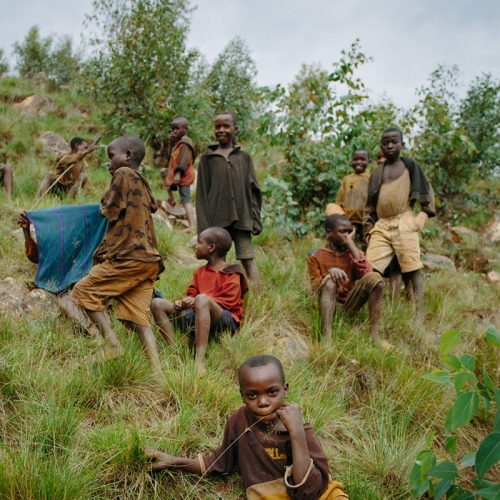“Lying in that hospital bed—sweating one minute, chills the next—I remember thinking, ‘Man, my body has never failed me before.’”
As Travis Jost recalled his recent health crisis in Burundi, he paused and swallowed as the pain of this memory etched raw emotion into his face.
“I felt like God was saying, ‘This is your last surrender.’”
In his journey to becoming a global worker with Multiply in Burundi, Travis thought that he had surrendered everything when he left Kansas: career, family, home, comfort. “You know, a new language, a new culture—that’s a lot to grab,” he said, reflecting on his last four years in Africa. “I felt like I had surrendered it all. I was willing to give up those things. But I don’t know that I ever really surrendered my health.”
It was in July of 2021 that Travis came down with a dangerously high fever and went to a local hospital in Burundi for bloodwork. Every test came back normal, which was perplexing. “They patted me on the head,” he recalled, “and told me, ‘Go home and have some herbal tea. You’ll be fine.’”
He was not fine.
Fever and fatigue were soon joined by severe vertigo and, before long, Travis was unable to move from couch to bed without reeling, holding onto walls, and at times crawling on his hands and knees. He hoped it would pass, but the symptoms only worsened.
“I finally waved the proverbial white flag,” he joked. “I don’t think I’d ever done that before. I called a healthcare professional—an American I knew in Bujumbura, the capital.” As he remembered the helplessness of that moment, Travis choked up again, and it was a long moment before he could continue with the story.
“I told him, ‘Okay, come get me.’”
By the time the healthcare professional arrived, Travis was incapacitated. The man packed a bag for him, walked him down the stairs, and drove him to Bujumbura. There, he proceeded to administer a myriad of intravenous medications and to run more tests. They all came back normal, a diagnosis evading them still.
Exhausted and discouraged, Travis reflected on the irony of his circumstances. “Here’s me, someone who was always into fitness, sports, always really active,” he said. “I always figured, whatever happens, I’ll be ready. Ready to go, ready to help, ready to serve. Now I’m in this bed, and I can’t even roll over without the whole world spinning out of control.”
Finally, the decision was reached that Travis should be taken to Nairobi. Tickets were purchased, and he was put onto an airplane with his new companion to take care of him. Once at the hospital in Nairobi, MRI scans were taken, and the test results were shocking: Travis had suffered a small stroke.
“In that situation,” Travis said dryly, “you don’t really hear the word ‘small.’”
He went on. “I figured they would just diagnose some virus, fill me full of drugs, and send me back to Burundi. This was turning out to be a longer stay than I had anticipated. A lot of poking and prodding, a lot of testing and scanning: heart, blood, everything. All normal. They did not have a lot of answers.”
During the whole ordeal, Travis found himself holding onto God’s Word. The first chapter of 1 John became his anchor, reassuring him of the reality of Jesus, the Word of life “which we have heard, which we have seen with our eyes, which we have looked at and our hands have touched” (v.1). As never before, this was the source of Travis’ hope.
“There’s only one guarantee. There’s only one promise,” Travis said quietly. “We all know that it’s Jesus himself and his presence with us, right? But it hits different when God allows us to feel it. That’s when we know that it’s all true. It’s all true.”
Having once received the diagnosis of a stroke, Travis found that every small symptom triggered a response of anxiety. He wondered if he could ever trust his body again. Then he suddenly thought, “Maybe that’s the point.”
“I realized just how much of my trust had been in the wrong place,” he explained. “What made me think that I was entitled to good health, a safe journey, an easy life? It’s all grace. There are so many things that, by the grace of God, I have experienced and escaped, like the daily miracle of getting from Point A to Point B.”
From the hospital, Travis was sent to a guesthouse in Nairobi to recover sufficiently so that he could travel back to North America. For six days, he lay in a peaceful environment looking out into a beautiful garden replete with tall trees that lifted his spirit and his thoughts.
“I lay there, looking at the trees, and felt grateful,” he recalled. “Grateful, at peace with not knowing, just waiting.” Looking around him, the imagery in Revelation 22:2 came into his mind, and he imagined himself seeing the Tree of Life whose leaves were for the healing of the nations.
“I asked myself, ‘What does healing even mean?’ Is it only physical? When the woman with the issue of blood touched the hem of his garment, and Jesus told her, ‘Your faith has healed you’ (Mark 5:34), was he only talking about her disease? Or was it a deeper healing, of being brought closer to the Creator? For me, it’s all woven together now: stroke, healing, trees, leaves, him.”
Eventually, Travis went to Kansas where he slowly recovered his strength while being surrounded and supported by family and friends. During that time, his balance, in more ways than one, was fully restored. He has now returned to Burundi where he continues to serve.
PRAY
Please pray for Travis’ health and strength and join us in giving thanks to the One into whose hands he has fully surrendered his life.
Pray also for the physical and spiritual health of our workers and partners around the world. To receive our Daily Prayer Guide and keep up to date on their various needs and requests, go to multiply.net/dpg

